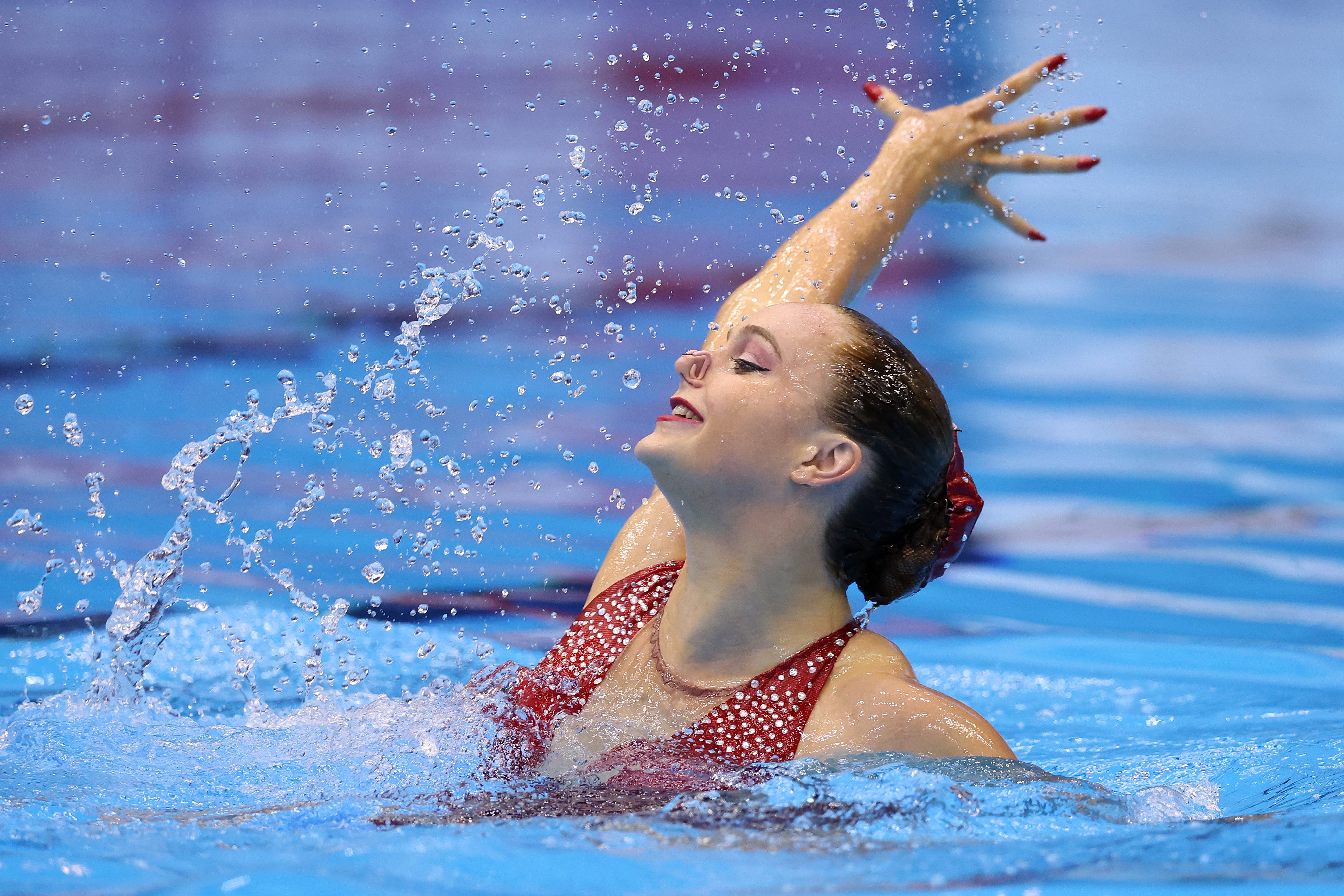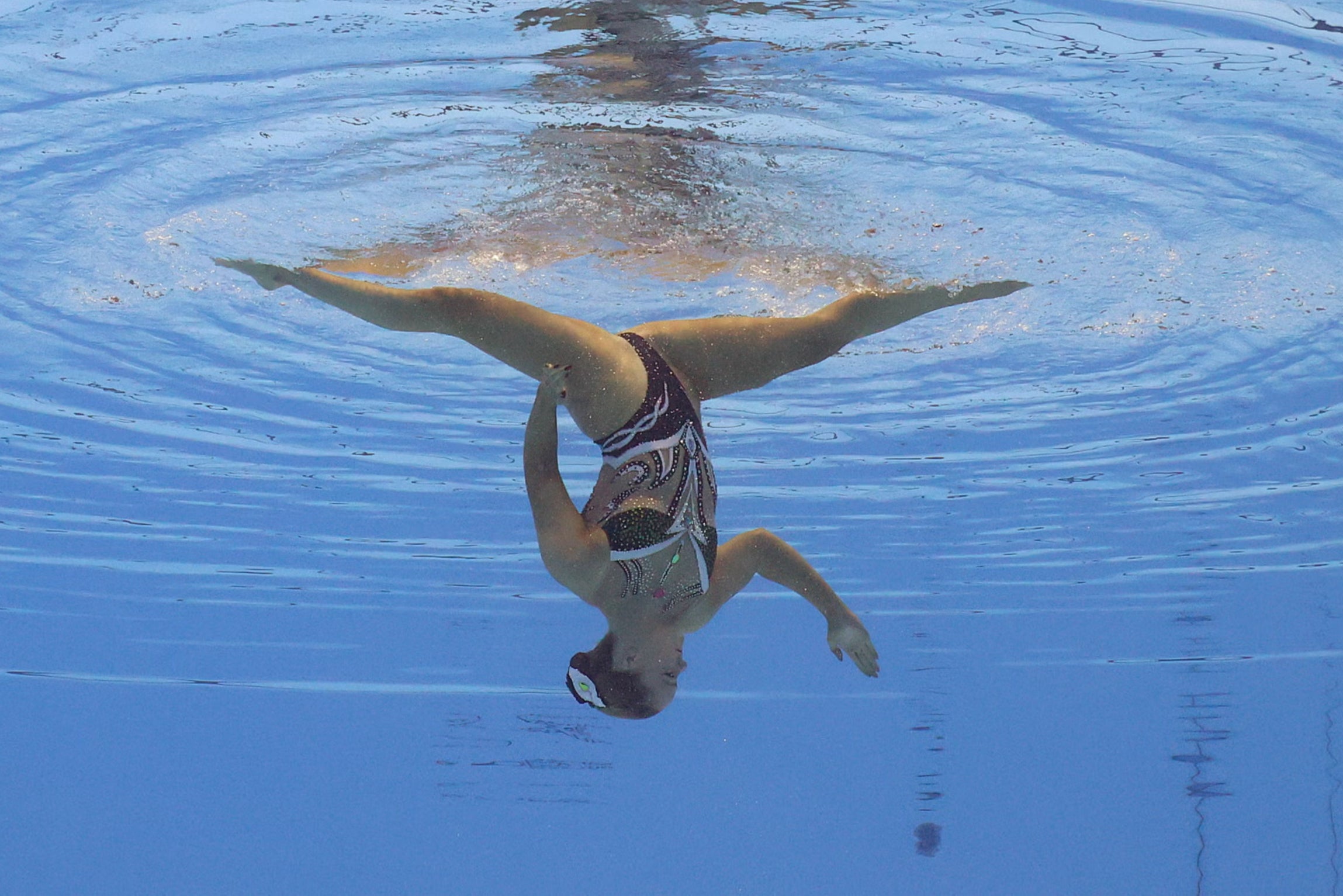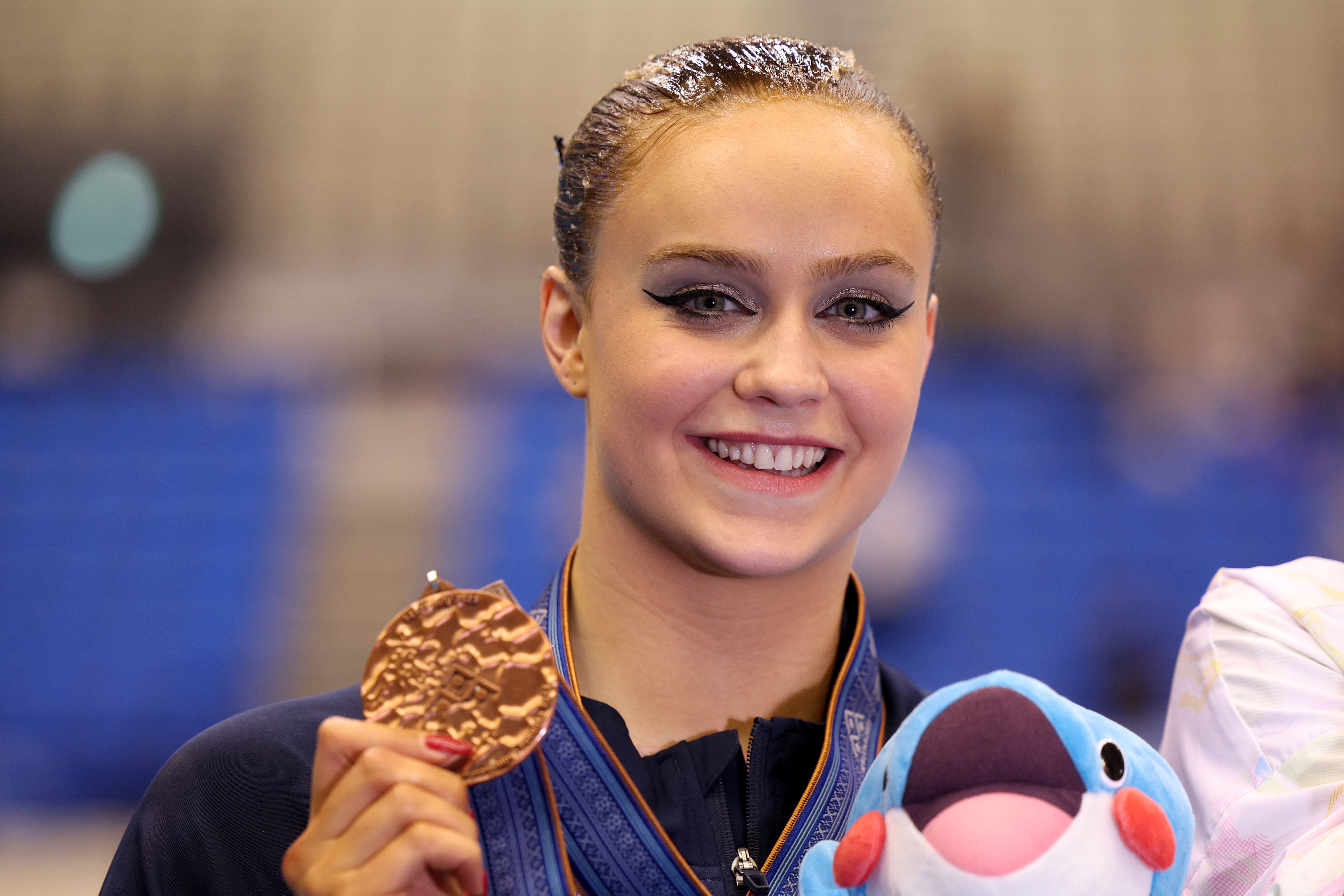The rule change that saved Olympic hopeful Kate Shortman from artistic swimming retirement
The Brit was transformed from the brink of quitting the sport to a World Championship medallist with Paris 2024 on the horizon

Your support helps us to tell the story
From reproductive rights to climate change to Big Tech, The Independent is on the ground when the story is developing. Whether it's investigating the financials of Elon Musk's pro-Trump PAC or producing our latest documentary, 'The A Word', which shines a light on the American women fighting for reproductive rights, we know how important it is to parse out the facts from the messaging.
At such a critical moment in US history, we need reporters on the ground. Your donation allows us to keep sending journalists to speak to both sides of the story.
The Independent is trusted by Americans across the entire political spectrum. And unlike many other quality news outlets, we choose not to lock Americans out of our reporting and analysis with paywalls. We believe quality journalism should be available to everyone, paid for by those who can afford it.
Your support makes all the difference.Artistic swimmer Kate Shortman revealed that she considered retirement just weeks before becoming Britain’s first-ever world medallist in the discipline.
The 21-year-old Tokyo Olympian, who partners Izzy Thorpe in the duet event, began the year seriously questioning her future.
The subjective nature of judging in her sport made Shortman feel that it would be impossible to break the glass ceiling and reach the podium.
“At the start of the year, I was feeling quite demotivated, and I didn’t know if my head was truly in it,” she explained. “Because I was thinking, it’s always going to be the same, I don’t think the rule change will make a difference, the rankings are always very similar.
“And I was just kind of thinking, have I got to the end of the road here with everything I can achieve? Have I already achieved my best? All those sorts of things were getting on top of a few of us, and it was quite demotivating.”
The scoring system for artistic swimming has recently been completely overhauled to become more scientific and less subjective.

Routine elements are scored against an overall degree of difficulty, while artistic impression judges will award scores for choreography and musicality, performance, and transitions.
Shortman had never finished higher than 10th at World Championships prior to the rule change but finished just behind Yukiko Inui of Japan and Vasiliki Alexandri of Austria to claim a historic bronze in the solo free event.
“With the new rule change, and with everything that’s happening, I can firmly say, I love the sport more than ever,” said the Bristolian. “I’m so glad that we all pushed through those times because it’s made us stronger as a team and it’s just renewed our love for the sport.
“We can look back and compare it now to where we were then and it’s just radical, the difference is incredible.”

At Tokyo 2020, Shortman finished 14th in the women’s duet event alongside childhood best friend Thorpe before they went on to claim bronze at this year’s European Games.
For Shortman, while the scoring changes have reinvigorated her love for the sport, it has also required a sharper mental focus with one wrong move spelling disaster.
She said: “It’s so much more about precision and accuracy now, which is one of the hardest things about the sport, because it’s very disorientating.
“You don’t have goggles on, you can’t hear the music that well, you’re trying to stay in pattern with someone else if you’re in a team or duet event.
“And obviously you need to stay in time with the music with the other person, so it is quite a disorientating sport and then to add that extra risk with the precision and the accuracy.
“It is really scary, it does up the nerves just before you swim, if you make one mistake or one slip base mark, the whole thing drops.”

Shortman, who trains in Bath alongside Olympic swimmers like double gold medallist Tom Dean, relished the opportunity to be surrounded by athletes from other aquatic disciplines at the World Championships, believing that artistic swimming combines elements of all of them.
She is one of over 1,000 elite athletes on UK Sport’s National Lottery-funded World Class Programme, allowing them to train full time, have access to the world’s best coaches and benefit from pioneering medical support – this is vital for their pathway to Paris 2024.
A strong performance at February’s Worlds in Doha is required to secure her spot at a second Games in Paris next summer. If she and Thorpe make it, Shortman believes anything is possible.
“We are dying to get an Olympic medal,” she admitted. “We are really, really pushing for an Olympic medal now.
“We’re absolutely going to work our socks off this season. We’ve been absolutely reinvigorated by a burst of motivation, and we can see that it’s definitely in our sights.
“It is not at all impossible that we could get any medal, not just a bronze, but any medal at the Olympic Games. We’re so excited and we can’t wait. We’re like ‘Bring it on!’”
National Lottery players raise more than £30million a week for good causes including vital funding into sport – from grassroots to elite. Find out how your numbers make amazing happen at: www.lotterygoodcauses.org.uk #TNLAthletes #MakeAmazingHappen
Join our commenting forum
Join thought-provoking conversations, follow other Independent readers and see their replies
Comments